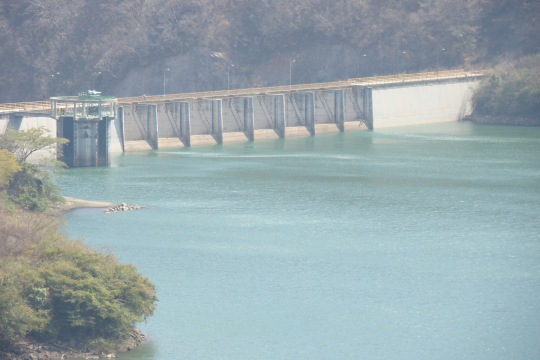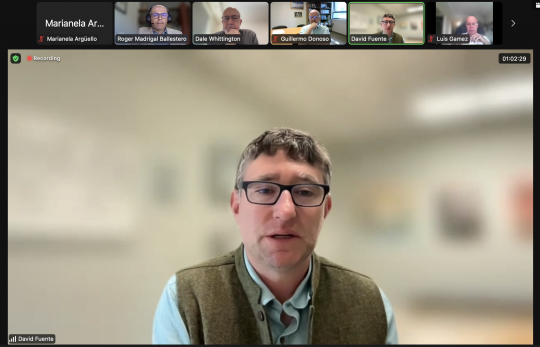Researchers from the EfD Water Observatories project participated as chairs and discussants in two sessions of this year's Society for Benefit-Cost Analysis Annual Conference, held virtually on March 17-22, sharing knowledge and perspectives about the water topic.
The session Welfare and Distributional Effects of Different Water Pricing Schemes had the participation of Felipe Vasquez-Lavín, from EfD Chile and Universidad del Desarrollo, as chair. David Fuente, University of South Carolina; and Joseph Cook, Washington State University, participated as presenters.
David Fuente discussed the history of increasing block tariffs in the water sector from a global perspective.
"Information about the capital intensity of water infrastructure may increase customers' perceptions of fair water prices," said David Fuente.
Also, he added that subsidy programs should reflect the reasons households struggle to pay their bills and consider how households would like to be helped.
Joseph Cook answered the question: Do households respond to a marginal or average price of piped water services?
The other presentations were done by Alejandra Chovar, from the University of Alicante; Michael Hanemann, from the Arizona State University; and Dale Whittington, from the University of North Carolina, at Chapel Hill.
Rewarding dialogue with utility companies
The session New planning and policy challenges due to climate change to utility companies was chaired by Roger Madrigal, EfD Central America Director, and was conjointly organized with Felipe Vasquez-Lavín and David Fuente.
The main goal of the session was to have a dialogue between policymakers and academics around three questions:
How has climate change affected or will affect utility companies in developing countries?
What solutions are being implemented by water utilities to deal with these issues?
What are the research gaps and opportunities for cooperation between academics, policymakers, and practitioners?
Official representatives from water utility companies from Costa Rica, Peru, and Kenya provided insights to answer these questions. From Costa Rica, Luis Gamez represented the Empresa de Servicios Públicos de Heredia (ESPH). Max Carbajal, from Peru, represented the Superintendencia Nacional de Servicios y Saneamiento (SUNASS), and from Kenya, Lucy Njambi, spoke on behalf of the Nairobi Water and Sewerage Corporation.
Then there were interventions from professors Guillermo Donoso, from the Pontifica Universidad de Católica de Chile, and Dale Whittington.
"Climate change is putting an increased emphasis on the need for utility companies to have better tools to deal with the fluctuations of the water use," said Dale Whittington.
Guillermo Donoso pointed out that utility companies need to work on projections on expected rainfall, water flow, temperature, and other issues to address climate change adaptation.
More and better research is also, according to him, needed on how to finance the increasing costs for investing in adaptation measures, such as building and maintaining water reservoirs.
Additional sessions with EfD researchers
Helena Cárdenas, EfD Central America Internacional Associate, also shared the results of a research study titled Salience of Information on Quantity. Does Provision of Information on Quantity Matters for Responses in Water Demand? Natural Experiment of the Digitalization of the Water Bill in San Jose, Costa Rica, during the session Water and Sanitation Planning and Policy in Low-and Middle-income Countries.
Written by: Marianela Argüello L.

